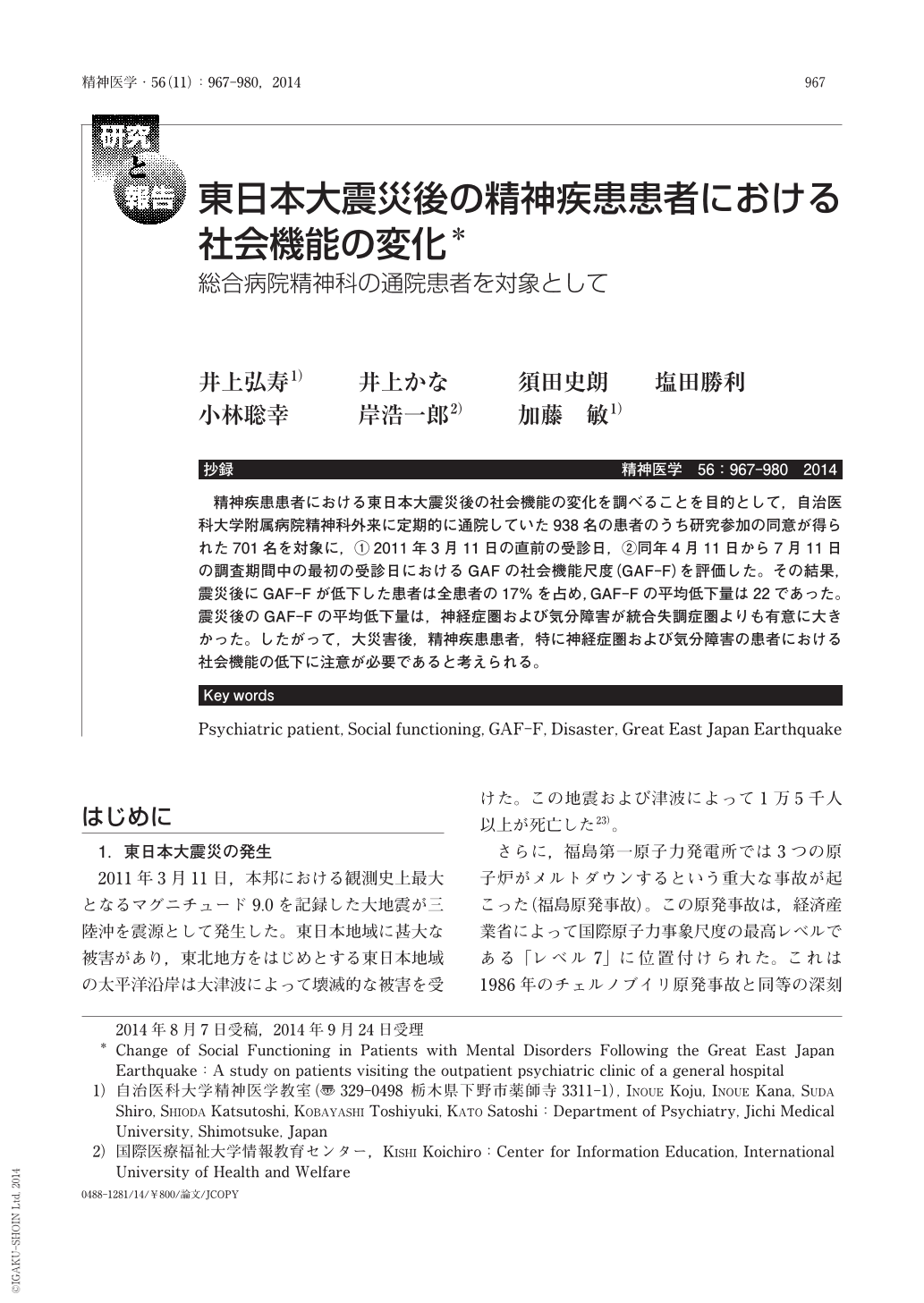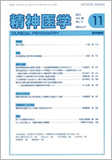Japanese
English
- 有料閲覧
- Abstract 文献概要
- 1ページ目 Look Inside
- 参考文献 Reference
抄録
精神疾患患者における東日本大震災後の社会機能の変化を調べることを目的として,自治医科大学附属病院精神科外来に定期的に通院していた938名の患者のうち研究参加の同意が得られた701名を対象に,①2011年3月11日の直前の受診日,②同年4月11日から7月11日の調査期間中の最初の受診日におけるGAFの社会機能尺度(GAF-F)を評価した。その結果,震災後にGAF-Fが低下した患者は全患者の17%を占め,GAF-Fの平均低下量は22であった。震災後のGAF-Fの平均低下量は,神経症圏および気分障害が統合失調症圏よりも有意に大きかった。したがって,大災害後,精神疾患患者,特に神経症圏および気分障害の患者における社会機能の低下に注意が必要であると考えられる。
OBJECTIVE:To evaluate functional changes among psychiatric patients and examine differences in functional changes among patients with different mental disorders after the Great East Japan Earthquake and the Fukushima Daiichi nuclear disaster.
METHOD:The subjects were 938 patients who regularly visited the outpatient psychiatric clinic of the Jichi Medical University Hospital. Of them, 701 gave written informed consent to participate. We reviewed their scores on the function subscale of the Global Assessment of Functioning (GAF-F) at the visits immediately prior to and following the disaster from charts and their primary doctors. Statistical analyses were applied to the data from patients with organic mental disorders (F0;n=38), schizophrenic disorders (F2;n=163), mood disorders (F3;n=299), and neurotic disorders (F4;n=150) based on the International Statistical Classification of Diseases and Related Health Problems 10th Revision (ICD-10);these patients constituted the majority of the sample.
RESULTS:After the disaster, 17% of the subjects with one of these four diagnoses showed a decline in GAF-F scores. The mean decline in GAF-F scores across all subjects who showed a post-disaster GAF-F decline was 22. This decline was higher in patients with neurotic and mood disorders than that in patients with schizophrenic disorders, even after adjustment for potential confounders. Change in post-disaster GAF-F scores in patients with organic mental disorders was not significantly different from that of other diagnostic groups. Multivariate logistic regression analysis revealed that patients with neurotic and mood disorders were more likely to have reduced social functioning scores after the disaster than those with other mental disorders.
CONCLUSION:Close monitoring of the social functioning of individuals with mental disorders, particularly neurotic and mood disorders, is needed after a major disaster.

Copyright © 2014, Igaku-Shoin Ltd. All rights reserved.


